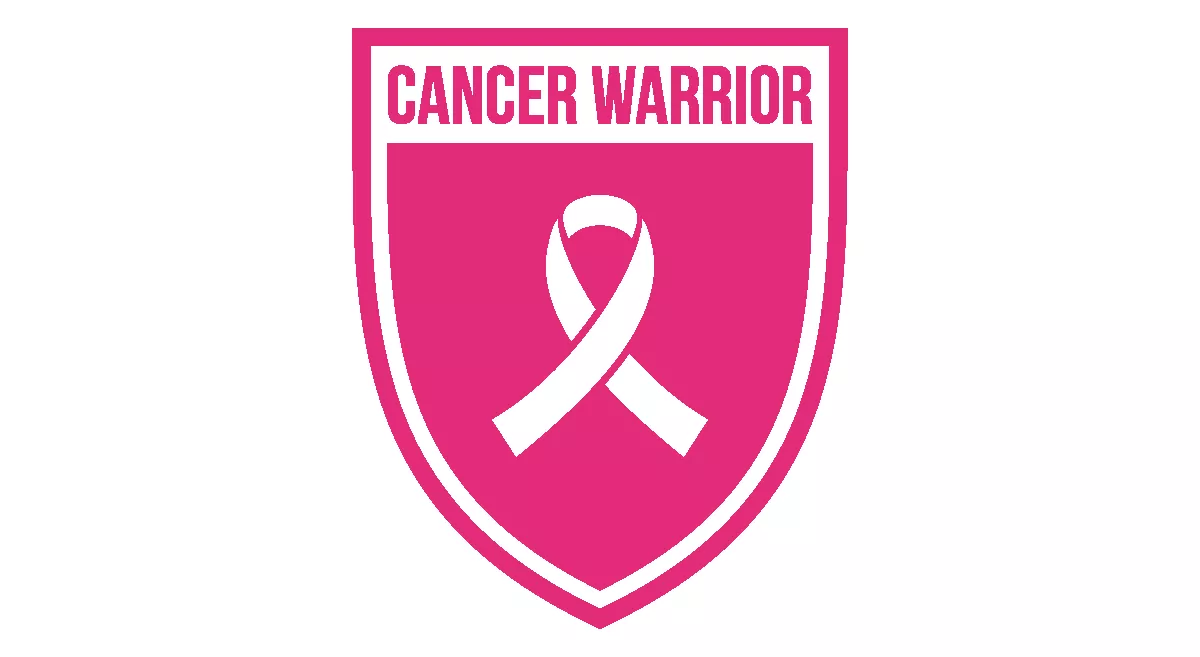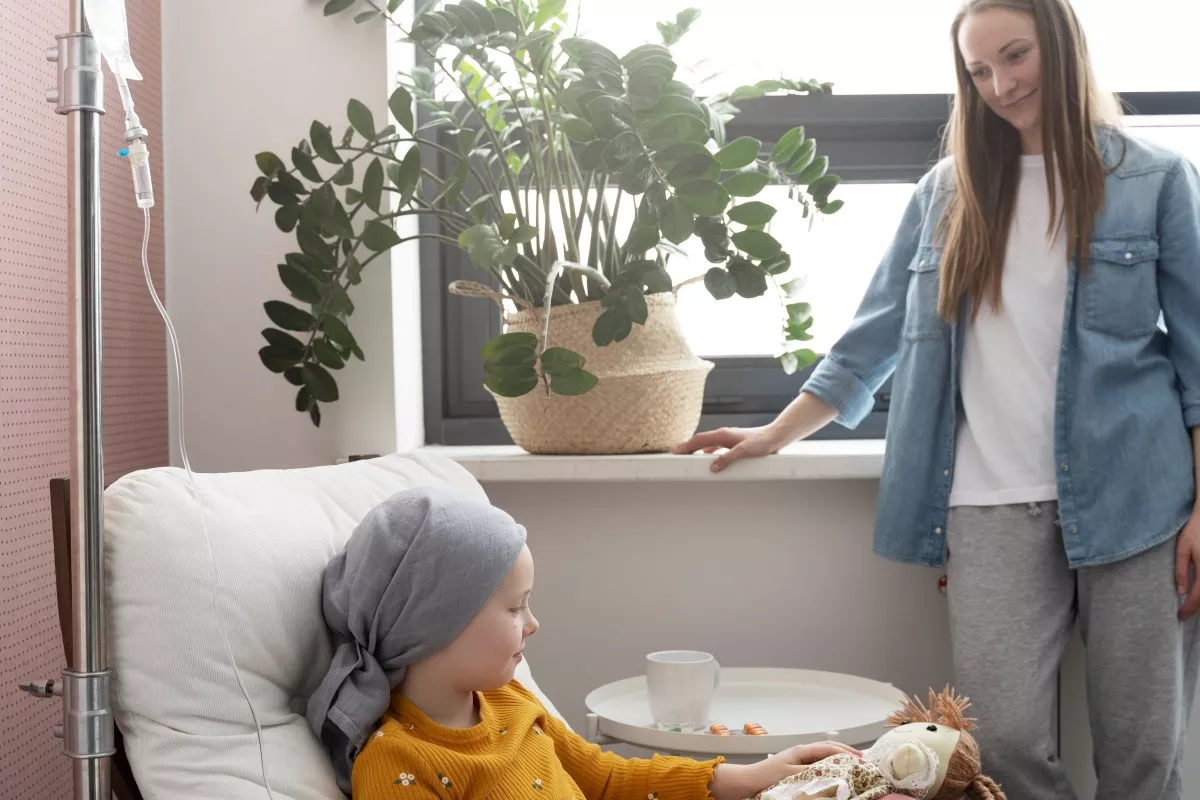We’ve heard so many stories of cancer survivors or people dealing with cancer. We know about the processes that a patient has to go through and rough times that one's body witnesses during this time. In this world of information, we understand the technicalities of cancer but what about the mental effects of this illness? Do we really understand what a patient goes through?&
Keeping in mind the occasion of World Cancer Day, this article will cover all the mental effects of cancer and try to take a deep dive into what a patient truly goes through. By the end of this article, we’ll have a better understanding of this illness, its mental side effects and hopefully, will have a more empathic thought process towards Cancer patients.
The Mental Effects Of Cancer
While the body goes through some adverse times while dealing with Cancer, the mental effects are hardly spoken about. Also, the fact is that only a Cancer patient truly understands the effects of this disease, the least we can do is empathise.
There are 3 main mental side effects of Cancer -
- Anxiety
- Depression
- Distress.
Anxiety&
Anxiety is that feeling of discomfort, worry or even the fear of a real or possible situation. The first step to dealing with anxiety is recognising it! It’s vital to do this and take steps to manage this situation.
Anxiety is a very common problem cancer patients deal with. As one goes through the process of cancer treatments and recovery, family members, caregivers and even the patient fear the worse that leads to anxiety.
Finding a lump or any sign or symptom of cancer can fire up the anxiety and fear in one's mind. Even the fear of treatment, testing, and doctor visits can induce a similar situation. That feeling that "something bad is going to happen" is constant.
What to look for
It's natural to be scared when you're sick. People may be scared of uncontrollable suffering, death, or what happens after death, especially what happens to loved ones. And, once again, family members and friends may feel the same way. Anxiety symptoms and signs include:
- Anxious facial expressions
- Uncontrolled worry
- Trouble solving problems and focusing thoughts
- Muscle tension
- Trembling or shaking
- Restlessness, may feel keyed up or on edge
- Dry mouth
- Irritability or angry outbursts.
Things for patients and caregivers to keep in mind
Cancer patients and their caregivers may experience anxiety symptoms. If the signs and symptoms occur most of the day, virtually every day, and interfere with daily activities, they may be more serious. A referral for mental health evaluation may be beneficial in certain circumstances. Keep in mind that, even if a person exhibits all of the symptoms, he or she may deny having these feelings. However, if they are prepared to admit that they are distressed or uncomfortable, counselling can often be beneficial.
- Encourage conversations without force
- Sharing feelings and fears
- Listen carefully to each other and offer support.
- Remember it's okay to feel sad and frustrated.
- Go for counselling
- Yoga and meditation really helps
- Regularly exercise
- Check with your doctor if you need anti-anxiety medication.
Things not to do
- Keeping feelings locked up inside
- Blame yourself or anyone for what you feel
- Try to reason with a person dealing with severe anxiety.
Panic attacks
Panic attacks can be an alarming symptom of anxiety. Panic attacks happen very suddenly and often reach their worst within about 10 minutes. The person may seem fine between attacks, but is usually very afraid that they will happen again.
What to look for
- Shortness of breath or a sense of being suffocated
- The heart is racing.
- Dizziness, unsteadiness, lightheadedness, or fainting
- Pain or discomfort in the chest
- They appear to be choking
- Shaking or trembling
- Sweating
- The fear of losing control
- A desire to flee
- Feelings of numbness or tingling
- Feeling "unreal" or "disconnected" from oneself
- Chills (shivering or trembling) or hot flushes (may involve sweating or facial reddening).
If the person has already experienced panic attacks and it occurs exactly as before, they can typically recognise it as a panic attack.
If the person recovers entirely and has no further symptoms, the reason was most likely a panic attack.
If a doctor diagnoses panic attacks, brief counselling and medications have been proved to be beneficial.
Actions a carer can take
Consult your doctor to ensure that the symptoms are caused by panic and not another medical condition.
During a panic episode, be calm and speak gently.
During panic attacks, sit with the person until they feel better.
If necessary, get assistance.
Encourage the person to get therapy for panic attacks when the panic attack has passed.
If necessary, provide transportation to and from treatment. The individual may be concerned that a panic episode would occur while driving.
Distress
The term "distress" has several meanings. An unpleasant sensation, mood, idea, condition, or action is referred to as distress.
Distress can have an impact on how you think, feel, and act, making it difficult to manage with cancer symptoms, treatment, and side effects. According to research, distress might influence how you make health decisions and take action. You may find it difficult to concentrate on treatment decisions, follow-up appointments, or even taking drugs that are necessary for your treatment. People may describe their distress as:
- Sad
- Fearful
- Angry
- Helpless
- Hopeless
- Totally out of control
- Uncertain about their beliefs, purpose, or significance in life
- They appear to desire to distance themselves from people.
- I'm worried about becoming sick
- Concerned about your home or your social role
- Depressed, anxious, or panicked
- Rely on coping strategies that have previously helped you overcome challenges and emergencies. Recognize that practically everyone requires individuals they can rely on to assist them when needed. Find someone with whom you feel comfortable discussing your illness. When you'd rather not chat, you might find that relaxation, meditation, music, or other calming activities are beneficial. Use whatever has previously worked for you, but if it isn't working, find another way to cope or get professional help
- Take cancer "one day at a time." Try to put your fears about the future aside. The chore of managing with cancer frequently appears less daunting when divided into "day nibbles," which are simpler to manage. This also allows you to concentrate on making the most of each day despite your illness
- If it makes you feel better, join a support or self-help group. You should leave any group that makes you feel worse
- Find a doctor who will answer all of your inquiries. Make certain that there is mutual respect and trust. Insist on being an active participant in your treatment. Inquire about potential side effects and be prepared to deal with them
- Knowing what difficulties to expect makes it easier to deal with them when they occur.
- Investigate any spiritual or religious beliefs or practises, such as prayer, that may have aided you in the past. If you do not consider yourself to be religious or spiritual, seek assistance from any belief systems that you appreciate. This may bring you peace and maybe help you find purpose in your disease experience
- Keep track of your doctors' phone numbers, treatment dates, lab values, x-rays, scans, symptoms, side effects, medications, and overall medical status. It is critical to have information regarding your cancer and treatment, and no one can retain it better than you
- If you need to express yourself without holding back, keep a notebook. It can assist you in processing the travel, and you may be surprised at how beneficial it can be.
Depression
When patients and family members are dealing with cancer, depression is frequent. It is normal to experience sadness and grief. Dreams, goals, and the future may appear hazy. However, if a person has been depressed for a long period or is having difficulty carrying out daily chores, there is cause for concern.
Depression can be moderate and transient, with episodes of melancholy, or it can be severe and long-lasting. The more severe kind is frequently referred to as major depression or clinical depression.
Major or clinical depression makes it difficult to function and adhere to treatment regimens. It affects around one in every four cancer patients, but it is treatable. People who have already experienced depression are more likely to experience depression following a cancer diagnosis.
What to search for
When family and friends observe signs and symptoms of depression, they can encourage the person to seek treatment. Anxiety or distress symptoms can sometimes coexist with depression. Here are some signs and symptoms that may indicate the need for professional care with depression:
- Continual gloomy, hopeless, or "empty" emotion for the most of the day practically every day
- Loss of interest or pleasure in previously enjoyed activities Significant weight loss (when not dieting) or weight gain
- Sleep changes (inability to sleep, getting up early, or oversleeping)
- Almost every day, I am exhausted or have little energy.
- Others see that you are agitated or "slowed down" almost every day
- Feelings of guilt, worthlessness, and helplessness
- Trouble focusing, remembering, or making decisions
- Frequent thoughts of death or suicide, or attempts at suicide
- Wide mood swings from depression to periods of agitation and high energy
Some physical difficulties, such as fatigue, loss of appetite, and sleep abnormalities, can be side effects of cancer treatment and may last after treatment is completed. Inquire with your cancer team about the possible reasons of these symptoms and whether depression is a component.
Depression treatment
Counseling, medicine, or a combination of the two, as well as other specialist treatments, may be used to address depression in cancer patients. These treatments alleviate depression, alleviate pain, and improve the quality of life for cancer patients.
What can the patient do
- Discuss your or your family members' sentiments and anxieties. It's okay to be unhappy, angry, or irritated, but don't take it out on those you care about.
- Seek assistance from support groups and counselling.
- Use mindfulness, prayer, meditation, or other spiritual support techniques.
- Deep breathing and relaxation activities should be practised multiple times per day. (For example, close your eyes, breathe deeply, and focus on each body part as you relax it, beginning with your toes and working your way up to your head. Imagine yourself at a beautiful spot when you're relaxed, such as a breezy beach or a sunny meadow.)
- To deal with the changes in your life, consider engaging with a professional counsellor.
- Inquire about depression therapies.
What caregivers can do
- Invite the patient to express their anxieties and concerns in a gentle manner. Do not press the patient to speak until they are ready
- Listen carefully without passing judgement on the patient's or your own sentiments. It is OK to identify and reject self-defeating thoughts
- Avoid asking the person to "lift their spirits" or "think optimistically."
- Determine what you can do to help each other
- If the person is experiencing significant dread, anxiety, or sadness, do not attempt to reason with them. Seek assistance from a member of the cancer care team
- Participate in activities that the individual enjoys
- Keep in mind that carers can get depression as well. All of these tips can also be used to caretakers
- Take the time to look for yourself. Spend time with friends or performing activities that you enjoy
- Consider seeking help for yourself through support groups or one-on-one counselling.
Conclusion
The point of this article is to highlight the mental health effects of Cancer and spread awareness for the same. This World Cancer Day, be more aware of the struggles of cancer patients than just being informed. Talking about topics like mental health only help normalise the conversation and create better opportunities for patients to seek help and get better.





